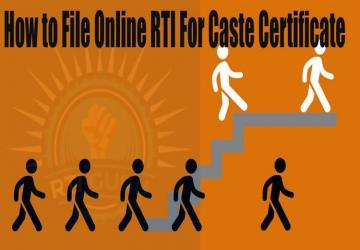


But in August 2013 the government introduced a Right To Information (Amendment) Bill which would remove political parties from the scope of the law. The CIC said that eight national parties - Congress, BJP, NCP, CPI(M), CPI, BSP, NPP and AITC - has been substantially funded indirectly by the Central Government and have the character of public authorities under the RTI Act as they perform public functions. The Central Information Commission (CIC) held that the political parties are public authorities and are answerable to citizens under the RTI Act. As of 2014, private institutions and NGOs receiving over 95% of their infrastructure funds from the government come under the Act. Private bodies are not within the act's In a decision of Sarbjit Roy vs Delhi Electricity Regulatory Commission, the Central Information Commission also reaffirmed that privatised public utility companies fall within the purview of RTI. It is also defined in the Act that bodies or authorities established or constituted by order or notification of appropriate government including bodies "owned, controlled or substantially financed" by government, or non-Government organizations "substantially financed, directly or indirectly by funds". It covers all the constitutional authorities, including executive, legislature and judiciary any institution or body established or constituted by an act of Parliament or a state legislature. Ī receipt for payment of a fee for collecting information under RTI act Singh's case on 20 September 2020, it is stabilised that right to information is a fundamental right.

Section 13 of the original Act: It sets the term of the central Chief Information Commissioner and Information Commissioners at five years (or until the age of 65, whichever is earlier). The Right to Information (Amendment) Bill, 2019, seeks to amend Sections 13, 16, and 27 of the RTI Act. RTI has proven to be very useful, but is counteracted by the Whistle Blowers Protection Act, 2011. Right to Information codifies a fundamental right of the citizens of India. Information disclosure in India had traditionally been restricted by the Official Secrets Act 1923 and various other special laws, which the new RTI Act overrides. Since RTI is implicit in the Right to Freedom of Speech and Expression under Article 19 of the Indian Constitution, it is an implied fundamental right. This act was enacted in order to consolidate the fundamental right in the Indian constitution 'freedom of speech'. The Public Information Officer (PIO) or the First Appellate Authority in the public authorities perform quasi judicial function of deciding on the application and appeal respectively. The authorities under RTI Act 2005 are called public authorities. Īlthough Right to Information is not included as a Fundamental Right in the Constitution of India, it protects the fundamental rights to Freedom of Expression and Speech under Article 19(1)(a) and Right to Life and Personal Liberty under Article 21 guaranteed by the Constitution. In the first ten years of the commencement of the act, over 17,500,000 applications had been filed. Every day on an average, over 4800 RTI applications are filed.

The RTI Bill was passed by Parliament of India on 15 June 2005 and came into force with effect from 12 October 2005. The Act also requires every public authority to computerize their records for wide dissemination and to proactively publish certain categories of information so that the citizens need minimum recourse to request for information formally. In case of matter involving a petitioner's life and liberty, the information has to be provided within 48 hours. Under the provisions of RTI Act, any citizen of India may request information from a "public authority" (a body of Government or "instrumentality of State") which is required to reply expeditiously or within thirty days. It replaced the former Freedom of Information Act, 2002. The Right to Information ( RTI) is an act of the Parliament of India which sets out the rules and procedures regarding citizens' right to information. An Act to provide for setting out the practical regime of Right to Information for citizens to secure information under control of public authorities, in order to promote transparency and accountability in the working of every public authority, the constitution of a Central Information Commission and State Information Commissions and for matters connected therewith or incidental thereto.


 0 kommentar(er)
0 kommentar(er)
